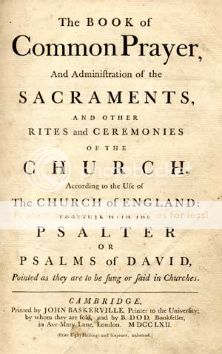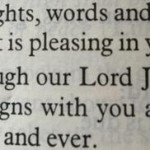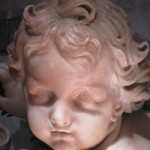
Over at Hot Air, yesterday’s quotes of the day were all about the oddly controversial issue of whether or not Christians, or any people of faith, have any business praying for Christopher Hitchens as he battles cancer.
The topic has generated a great deal of surprising commentary, even here on this blog; at Hot Air, they are highlighting quotes from Fr. Robert Barron, whose Word on Fire videos i sometimes post here, and from this really excellent exchange between Hitchens and Hugh Hewitt.
They also highlight quotes from this article, which provides quotes from an atheist, and a believer.
As an atheist, I find it objectionable that anyone should feel the right to pray for me because I don’t believe as they do. That’s as bad as that idiot church who thinks its a good idea to baptize dead Jews or protest at military funerals. It’s the worst kind of pandering.
Well, the atheist is certainly entitled to think what he wishes, and even to tell people not to pray for him. And I suppose if someone asks you not to pray for him, you shouldn’t. But then again, how could he ever stop you? Prayer is the subversive liberty; the one thing that no one can take from you or prevent you from engaging in, unless they lobotomize you or kill you. Except, one never knows fully what is happening with the brain. Perhaps a lobotomy might end vocal prayer, even overtly conscious prayer, but it may still exist elsewhere in the chambers of the body and soul. My severely brain-damaged brother was still able to pray. I have volunteered with brain-injured patients who have indicated through various and surprising means that prayer is still alive within them.
And as a Christian, I know that physical death cannot end my prayers, because my soul is eternal; if I am a member of the great cloud of witnesses, what could stop my prayer? Nothing on earth.
Perhaps that is what secularism and “new” atheism so despises about religion in general, and the very notion of prayer having power; prayer is a force utterly outside of their control. When totalitarian regimes come into power, one of their first orders of business is to close the monasteries–those powerhouses of prayer–and disperse or imprison their inhabitants. It gives them an illusion of control, although the prayer goes on, completely out of their reach.
Atheists often argue that prayer has no power, that “studies” (which, dependent on methods and parameters, can “prove” or “disprove” almost anything) have debunked the efficacy of prayer. But if they truly were secure in that belief, they would not feel the need to try to suppress it.
The comments of the believer were interesting, too, but I thought just a tad narrow and door-shutting. See if you agree:
Rev. Barron’s main point is right on target. As Christians, we should, indeed, pray for and love those who oppose, ridicule and even persecute us. However, Rev. Barron states and uses as his basis for praying for Mr. Hitchens that Hitchens is “a child of God.” For a reverend, a ministry founder, a host of a religious program and a religion professor, I am astounded at Rev. Barron’s ignorance of the Bible. According to the Bible, as an atheist, Mr. Hitchens is NOT a “child of God.” That description is reserved for only those who receive and believe in Jesus Christ as Savior and Lord (John 1:12).
I am always uneasy when someone takes one verse of scripture, and tells the world that because of that line, a certain thing either is or is not, and therefore implies that God’s mind and intention can be limited by it. It would be like me saying that because Jesus says in John 6:53 “unless you eat the flesh of the Son of Man and drink his blood, you have no life in you,” a non-Eucharistic life is invalid, or that Christ cannot live in anyone who worships outside of the Eucharist.
That would go over well, do you think?
Catholics see all of God’s creation as belonging to Him; its fullness resides in Him. Human creation is His, and if God is Father, the rest follows. Whether created creatures claim their birthright or not is another thing. They needn’t claim access to God’s love or mercy, either; the choice is always theirs to make. But those gifts are always there–exuded by the constant God who is Love–awaiting them, even before they want it.
One could argue, and I suppose I shall, that whether he is currently a believer or not, Hitchens has been baptized in the Anglican Church, and that means he has been claimed for Christ, just as surely as was Lydia’s entire household in Acts 16. That portal of grace opened via the sacrament does not close; Baptism is no mere symbolic washing. Adults I know who have been baptized tell me it is much more than that. For that matter, so does the catechism of the Catholic church:
Holy Baptism is the basis of the whole Christian life, the gateway to life in the Spirit (vitae spiritualis ianua), and the door which gives access to the other sacraments. Through Baptism we are freed from sin and reborn as sons of God; we become members of Christ, are incorporated into the Church and made sharers in her mission: “Baptism is the sacrament of regeneration through water in the word.”
Born again in Christ.
I wonder if the believer who, based on a line of scripture, says Christopher Hitchens is not a child of God would dare to challenge God on that point.
But I do not wonder at CNN’s having quoted him.











